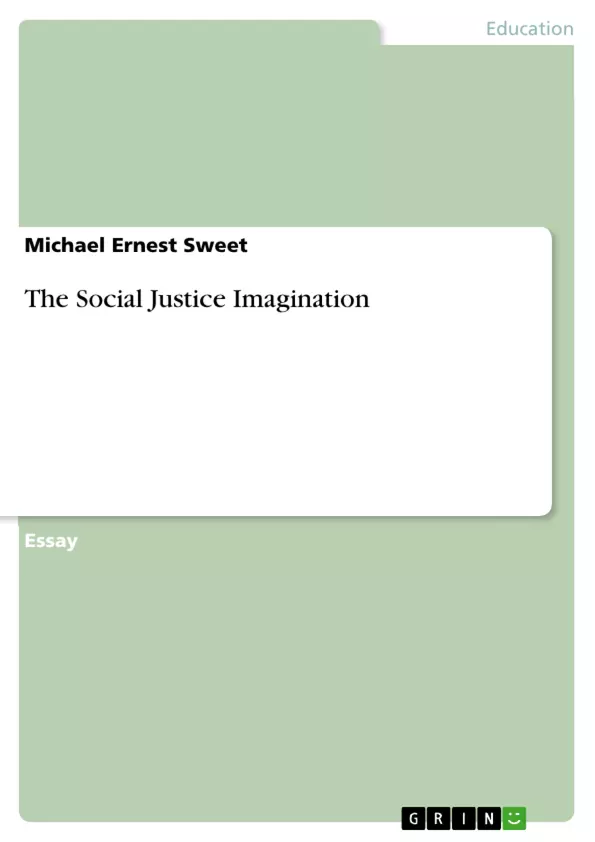The Social Justice Imagination (a term coined by award-winning educator and writer Michael Ernest Sweet) refers to the notion that creative writing can be a significant opening toward strengthening the imaginative process implicit in social justice compassion and understanding. That is, through the literary imagination we come to understand others, unlike us, and develop empathy for their plight. The literary imagination informs our understanding of the human condition and with this we are better enabled to be motivated toward social justice. The book uses specific student-written creative writing samples to elucidate this notion.
Inhaltsverzeichnis (Table of Contents)
- What School Could Be
- Courage
- Common Sense
- Compassion
Zielsetzung und Themenschwerpunkte (Objectives and Key Themes)
This text aims to re-imagine what schooling could be and to propose a framework for social justice in education. It argues that the current educational system is inadequate and fails to provide children with a safe and nurturing environment where they can learn and grow.
- The need for courage, compassion, and common sense in education
- The importance of humanizing education and recognizing students as individuals
- The dangers of dehumanization and the need to challenge the bureaucratic system
- The role of schools in transforming society and fostering social justice
- The importance of teachers having meaningful relationships with students
Zusammenfassung der Kapitel (Chapter Summaries)
- What School Could Be: This chapter begins by posing the question of what school could be, arguing that it is a question rarely considered seriously. The author then explores the lack of courage, compassion, and common sense in the current educational system, citing examples such as the suspension of an eight-year-old boy for drawing a picture of Jesus Christ.
- Courage: This chapter discusses the lack of courage in the educational system, from politicians and parents to teachers and administrators. The author argues that this fear leads to poor schooling and a lack of respect for teachers.
- Common Sense: This chapter examines the lack of common sense in education, citing examples such as the use of incomprehensible evaluation systems and the suspension of students for seemingly harmless acts. The author argues for a return to simple and effective methods.
- Compassion: This chapter focuses on the lack of compassion in schools and the need to recognize students as individuals with feelings, hopes, and dreams. The author argues that meaningful relationships between teachers and students are essential for creating a nurturing learning environment.
Schlüsselwörter (Keywords)
This text explores the themes of social justice, education, courage, compassion, common sense, humanization, dehumanization, bureaucracy, and meaningful relationships.
- Citation du texte
- Michael Ernest Sweet (Auteur), 2010, The Social Justice Imagination, Munich, GRIN Verlag, https://www.grin.com/document/181689



